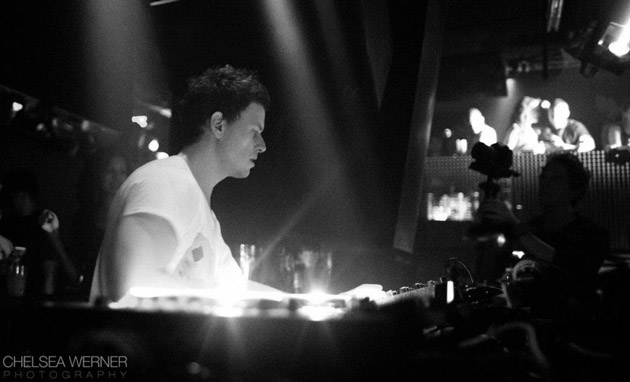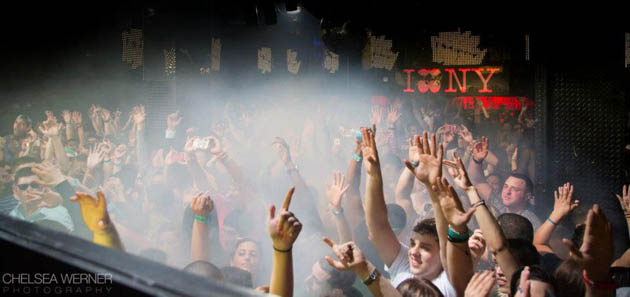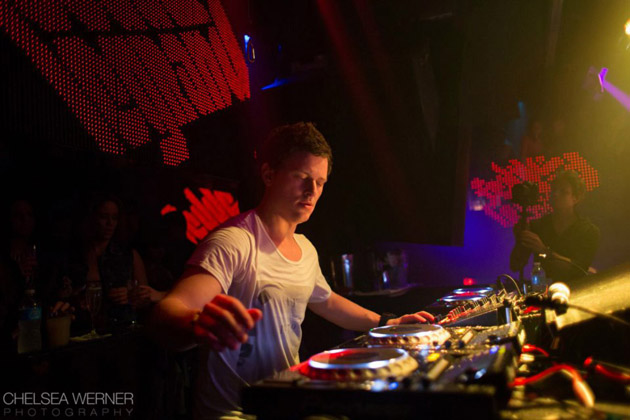 There’s irony in Ultra Music Festival holding a club tour. Celebrating its 15th anniversary this year, Ultra stands for everything modern (and occasionally reviled by purists) about electronic dance music: the hottest artists put front and center in the lineup, the biggest singles remixed in regular rotation, and sets no more than 60 minutes long. Road to Ultra: A Long Way From Home’s antithetical format, then, appears as a regression, but for many DJs tired of the truncated yet bombastic festival sets, clubs represent a return to form and a chance for chart-toppers to prove their clout.
There’s irony in Ultra Music Festival holding a club tour. Celebrating its 15th anniversary this year, Ultra stands for everything modern (and occasionally reviled by purists) about electronic dance music: the hottest artists put front and center in the lineup, the biggest singles remixed in regular rotation, and sets no more than 60 minutes long. Road to Ultra: A Long Way From Home’s antithetical format, then, appears as a regression, but for many DJs tired of the truncated yet bombastic festival sets, clubs represent a return to form and a chance for chart-toppers to prove their clout.
The job couldn’t go to anyone more qualified than Fedde Le Grand. The “Put Your Hands Up For Detroit” producer has one of the most rounded resumes in EDM: a top-notch DJ talent who began his career in clubs, an equally-excellent radio show to prove it, and some dynamite singles. “Raw,” his latest offering after laying low for a good deal of 2012, is one of 2013’s strongest house tracks thus far. Le Grand, in his Road to Ultra performance at Pacha NYC, distinctly shows not only his chops yet again but also that the hyper-focused festival format can work in a club setting when the right DJ does it. Out of the night’s progression, Le Grand was the apex.
Pacha NYC regular Gian promptly began at 10 p.m. with a foundation-building set – a traditional club offering of easygoing house. Crescendos of percussive elements punctuated his three hours behind the booth, while, at one point, an out-of-nowhere saxophone sample sounded more sexy disco than soft core porno.
The true test, however, of any opener is the audience’s reaction: Do they float off to the perimeter and meander, clearly waiting for the main attraction to begin, or do they actually dance? Pacha NYC’s dance floor, after an hour, already had the look a headliner took the stage.
If the EDM festival and 60-minute set have replaced the standard club format, smartphones have taken the role of glow sticks. Once Le Grand got behind the booth without missing a beat, both in the literal and figurative senses, nearly all of the dance floor’s crowd turned on their devices to capture the DJ’s entrance. Not fazed by it, at least in appearance, Le Grand finished off a crescendo to officially begin his set.
What makes Le Grand such a great experience to watch is his versatility. Behind Pacha NYC’s Pioneer equipment, the producer rapidly attended to his controls over three hours. Although his contemporaries’ skills have been wildly debated, Le Grand didn’t resort to pressing a space bar and grinning.
Much of the first hour consisted of showcasing experimental material, specifically Le Grand’s ability to drop an emphatic bass drum line and slide in some slinky synths. Excluding “So Much Love,” the majority of his first hour involved Le Grand putting his skills, excellent pacing, and track selection of display – and getting the audience to move along.
As anyone who has been to UMF can attest, the festival’s main stages frequently involve laying down new remixes of the hottest tracks. In 2012, “Levels” became the “it” song to bend and distort. For 2013, Baauer’s “Harlem Shake” or Avicii and Nicky Romero’s “I Could Be The One” will likely assume such a role. Le Grand, by the second hour and for the remainder of his set, indicated what listeners could hear in Miami. Aside from a bass-emphatic take on the Avicii-Romero collaboration, Le Grand frequently snuck in a Swedish House Mafia melody, perhaps to allude to the trio’s current string of New York concerts and, ultimately, their final performance this month. But rarely was a track remixed in full, and Le Grand’s inclusion of their infection melodies, sans overly-saccharine vocals, indicates Swedish House Mafia are often better in small doses.
Le Grand, of course, added his own material sporadically, with tracks like “Raw,” “Paradise,” and “Sparks” easy floor fillers. On the other hand, with the exception of “So Much Love,” Le Grand isn’t an anthemic artist in the same vein as David Guetta or Avicii. Instead, vocals – and occasional vocoder – add a finishing but not necessary touch to the heavy bass and percussion or intertwine with synth chords or arpeggios. They’re rarely essential and further point to the fact that this producer doesn’t have to lean on collaborators to catch the audience’s attention.
If Le Grand got the prime spot of the night, Sultan and Ned Shepard had a far more difficult role to fill – picking up from Le Grand at 4 a.m. Although not nearly as innovative yet, the two – who are gradually garnering greater attention and recently collaborated with Le Grand on the festival’s theme “A Long Way From Home” – effectively assumed his character to finish off the night on a high note.






